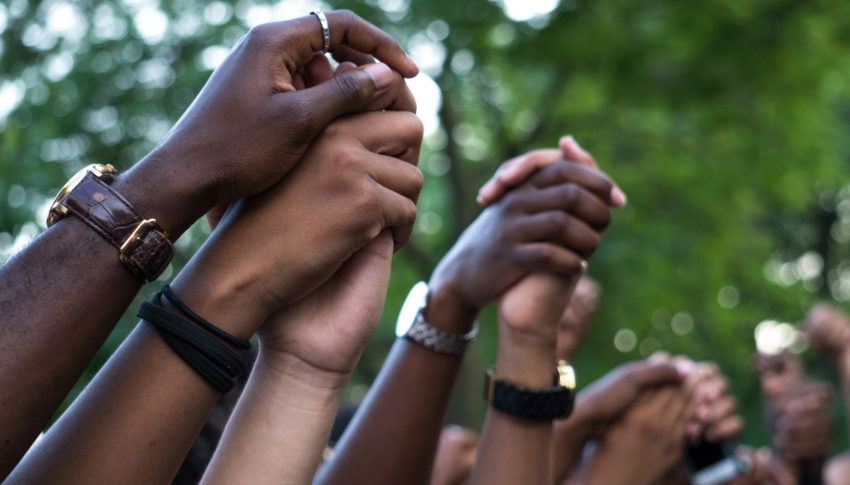
Share On Social!
Dr. Amelie G. Ramirez, director of Salud America! at UT Health San Antonio, has issued the following statement about the death of George Floyd in Minneapolis and its aftermath across the country:
“The murder of George Floyd at the hands of those whose duty it was to serve and protect him is one in a long series of tragedies impacting the Black community. We offer our condolences to the families of Mr. Floyd, Breonna Taylor, Ahmaud Arbery, and the countless others who have died from perpetuated systemic racism and injustice in America.
We stand with our Black brothers and sisters in this catastrophe, as well as those who are standing in the streets—putting themselves in harm’s way—to speak out against injustice.
Racial injustice is a public health issue—and it permeates every level of policy-making in the United States.
For years, it has been Salud America!’s mission to raise awareness about health disparities impacting the Latino community. Through written articles, web-based docuseries, action pack toolkits, podcasts, social media posts, and other multimedia efforts, we share how unjust policies and practices are connected to health disparities, and we prompt people to take action.
While we work under the umbrella of racial injustice, we too are still learning in how best to participate in this issue. By hearing our colleagues of African descent, we recognize that violence and oppression—both immediate and prolonged—against African Americans, Afro-Latinos, and all Americans warrants dedicated action from programs like ours, as well as lawmakers, community leaders, business owners, faith groups, and every citizen in the country.
So we will continue to expand our work in driving equitable changes in health systems and policies that affect underlying disparities, inequities, and the ethnic prejudice that continues to harm people of color today.
We will continue to cover how a widespread lack of access to healthcare afflicts Blacks, Latinos, and other communities of color — resulting in worse health outcomes, shorter life expectancies, generational diseases, and the countless other issues harming these groups. We will further our conversations about how organized efforts to reduce opportunities to healthy food, adequate education, and fair treatment under the law impact health. We will continue to engage our communities in building trust, addressing implicit bias, moral disengagement, and system justification against those in poverty, and helping bring about positive actions that, we hope, will change hearts and minds.
There is no easy answer in the question of fixing a system that was broken from the beginning. There is no smooth road to racial reconciliation. There is no quick solution or a catchall band-aid in this tragedy.
There is, however, a choice to address the many problems hurting this country. There is a way back for us all, one that gives our children and their children a chance to see an America that celebrates all its people. There is an opportunity for those in power to hear the cries of those in danger and act. There is a brighter future ahead, if we desire it.”
Amelie G. Ramirez, DrPH, an internationally recognized researcher in Latino health, is director of Salud America! and its home base, the Institute for Health Promotion Research at UT Health San Antonio. Amelie has spent 30 years directing research on human and organizational communication to reduce chronic disease and cancer health disparities affecting Latinos, including cancer risk factors, clinical trial recruitment, tobacco prevention, obesity prevention, healthy lifestyles promotion, and more. Salud America! is a national Latino-focused organization that creates culturally relevant and research-based stories, videos, and tools to inspire people to start and support healthy changes to policies, systems, and environments where Latino and all children and families can equitably live, learn, work, and play.
Explore More:
Overcoming Harmful BiasesBy The Numbers
3
Big Excuses
people use to justify discriminatory behavior



